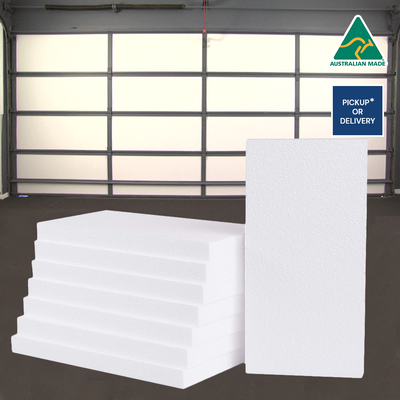Expanded polystyrene (EPS) is a versatile and widely-used material that has a range of applications across different industries. EPS is a lightweight, rigid plastic foam material that is made from polystyrene beads. These beads are expanded and molded into various shapes and sizes to meet the specific requirements of different applications. In this article, we will explore some of the key applications of EPS and discuss its benefits and limitations. To get more information about expanded polystyrene you can also check this firm The Foam Company.

Construction and Insulation
One of the primary applications of EPS is in the construction industry. EPS foam boards are commonly used as insulation material in buildings. The lightweight and thermal insulation properties of EPS make it an ideal choice for insulating roofs, walls, and floors. EPS insulation helps to reduce heat transfer, keeping the interior of buildings cool in hot weather and warm in cold weather. It also helps in reducing energy consumption and lowering heating and cooling costs.
Packaging
EPS is widely used for packaging purposes due to its excellent cushioning and shock-absorbing properties. EPS packaging is commonly used for fragile items such as electronics, appliances, and glassware.
Manufacturing and Industrial Applications
EPS is used in various manufacturing and industrial applications due to its lightweight, insulating, and cushioning properties. It is commonly used as a core material for sandwich panels used in the construction of walls, roofs, and floors.
Arts and Crafts
EPS is also widely used in arts and crafts due to its ease of shaping and versatility. It can be easily cut, sculpted, and painted to create various artistic and decorative items. EPS foam sheets are commonly used in model making, architectural models, and stage props. Its lightweight nature makes it easy to handle and manipulate, while its rigidity allows for precise detailing.
Limitations and Environmental Concerns
While EPS has numerous applications and benefits, it is important to consider its limitations and environmental concerns. EPS is not biodegradable and takes hundreds of years to decompose in landfills. Improper disposal of EPS can contribute to environmental pollution. However, EPS can be recycled, and many recycling facilities are available that accept EPS waste.
Conclusion
Expanded polystyrene is a versatile material with a wide range of applications across different industries. From construction and insulation to packaging and arts and crafts, EPS offers numerous benefits such as lightweight, thermal insulation, and shock absorption. However, it is important to be mindful of its limitations and environmental concerns. Proper disposal and recycling of EPS waste are crucial to minimize its environmental impact.
